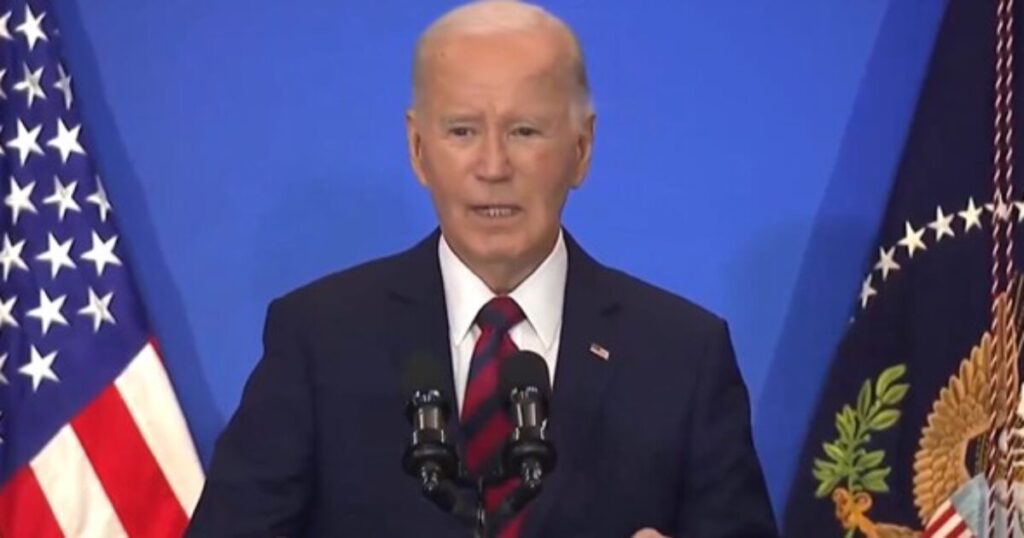During a recent press conference at the Brookings Institution in Washington D.C., President Joe Biden faced a significant challenge when the Teleprompter malfunctioned, leaving him to navigate the speaking engagement without his prepared remarks. This incident illustrates not only the technical difficulties he encountered but also sheds light on the broader criticisms he is facing from within his own party. As Biden spoke about his decision-making on the U.S. economy, his inability to improvise effectively cast a shadow on his presentation, highlighting concerns about his leadership and communication skills in critical moments.
The incident was emblematic of Biden’s current struggles as president, particularly concerning economic issues that have become increasingly contentious. His Democratic peers have expressed disappointment in his handling of economic matters, especially as former President Donald Trump seems to be regaining the spotlight on these issues. By failing to convey a confident and coherent message during his speech, Biden further fueled criticisms that his administration is not effectively managing the nation’s economic challenges and that he is losing ground to rival political figures ahead of future elections.
When the Teleprompter failed, Biden appeared visibly flustered, stumbling over his words and struggling to maintain coherence. His comment about having “lost electricity” highlighted the awkwardness and confusion of the moment, reflecting a deeper concern over his ability to lead and communicate effectively under pressure. This foible led to a portrayal of the president as unprepared and out of touch, particularly in matters that directly affect the American populace, such as employment and housing costs that have risen sharply during his administration.
As he attempted to regain his composure, Biden made sweeping claims about the economy that many critics found to be misleading. He suggested that President-elect Trump would inherit a “strong economy,” despite widespread public sentiment that contradicts this assertion. Biden’s comments overlooked the hardships millions of working Americans are facing, including the rising costs of basic necessities, which have caused anger and frustration among constituents. In the eyes of the public, his rhetoric lacked grounding in the realities experienced by many individuals, ultimately alienating potential supporters.
Moreover, Biden’s assertions about his economic legacy were met with skepticism, as many Americans contend that his policies have contributed to the difficulties they currently endure. The president’s attempt to frame his administration’s economic performance in a positive light was seen by many as a deliberate misrepresentation of the facts, further intensifying ongoing debates regarding accountability for economic issues. This disconnect between Biden’s narrative and the lived experiences of voters could have significant implications for his administration moving forward, particularly as elections near.
In summary, Biden’s struggle during the recent speech, compounded by his contentious claims about the economy, reflects a larger narrative of his presidency as it struggles under the weight of economic challenges and party dissent. With heightened scrutiny from all sides, Biden’s ability to effectively manage his communication strategies and engage meaningfully with the American electorate will be critical in determining his political future and the direction of the Democratic Party as it looks ahead to upcoming elections. The final days of his presidency could become a critical juncture, as he faces the prospect of an incoming administration that may reshape the political landscape in significant ways.

